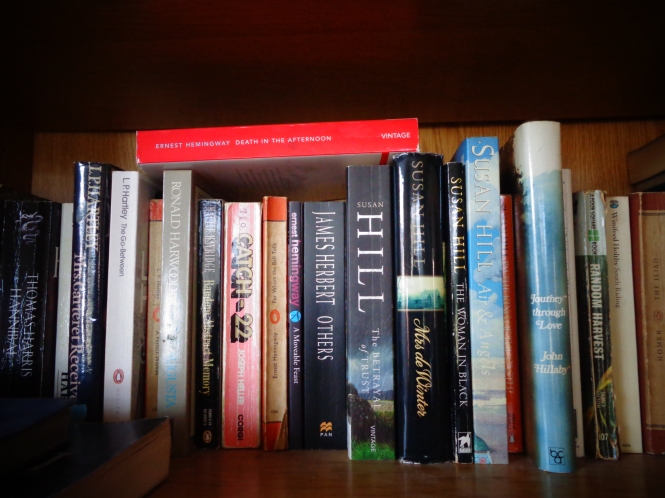This morning, heard a snippet on Radio 4 with actress Imogen Stubbs talking about the way novels, plays, poetry is taught to pass an English exam. Think it stemmed from Ian McEwan talking about how his son got a C after helping him with an essay/homework. Imogen Stubbs is married to the Guru of Shakespeare, the theatre director, Trevor Nunn. She got him to write an essay on a Shakespeare play and submit it anonymously. He didn’t get an A* and he knew the play backwards, forwards and sideways.
Nunn got feedback! He was told he got a lower grade because he didn’t relate back to the essay question at the beginning of every paragraph and he didn’t tick boxes by talking about assonance etc. However, he felt that he did answer THE QUESTION!
So, another question is being raised; do authors want their books dissected and discussed with exam grades in mind, or would they prefer them to be read for pleasure, inspiration and whatever the reader wants to take from them?
Just a little point – many authors feel they have hit the jackpot when schools add their book to their list. Means big sales! But that is another issue.
Going back to the point in hand. Who then, knows the book, play, poem best? The author? The reader? The teacher? The exam board? Whoever it is who makes the exam criteria?
The author has a story to tell. They don’t usually think about tick boxes. They may know all about structure, but many just want to tell their story. Agh!!! Can feel another discussion coming on…straying from the point, the backbone of my blog – definitely a no-no in writing fiction. (Note to self – subject for next blog post! – Writing by numbers, writing courses, writing to the screenplay format)
Right. Back to the point. And stick to the point.
I remember English Literature putting me off books. We squeezed out meaning, learned quotes to back up theories, pulled out alliteration, analogies, the weather in Thomas Hardy novels. And back then, we read the entire book. My daughter told me, she didn’t even have to read the whole book to pass an exam. What is that about? Very rude to the author who has spent blood, sweat and tears and years writing the book, plus, to understand a book, you need it’s entire, grand sweep. I’m growing emotional now.
So. What do you think?
- Who is best qualified to talk about a book in terms of theme, structure etc? Author? Teacher? Someone else?
- What is the point of dissecting novels like this?
- What questions would you ask the author?
- What did the author intend when they wrote the book, as in reading it for personal pleasure or to learn about structure and onomatopoeia?
- Once the book is published – who does the book, what is written in the pages, belong to?
- Why do you read book?


